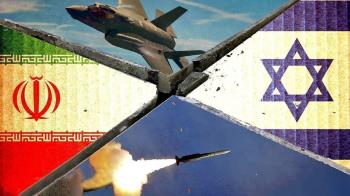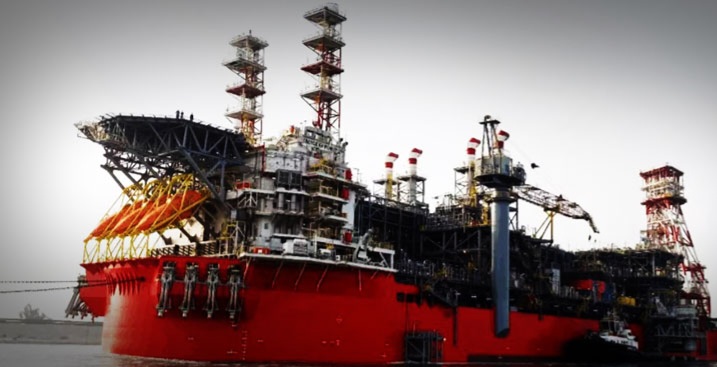Alwaght- Energy resources in the Mediterranean have given the region a high geopolitical significance in recent years, to an extent that many regional and international actors are involved in a rivalry there. The oil price surge and the heightened European need for gas after Ukraine crisis and Russian gas supplies halt are intensifying the competition for shares in the new gas markets.
Meanwhile, a Lebanese-Israeli deal struck recently appears to influence the energy equations in the Mediterranean. Actually, this agreement takes a place in the bigger picture of the Eastern Mediterranean as a geopolitical complex that is constantly shaped by the energy and geopolitical dynamics, and its vital importance transcends the region.
In one of the impacts of the gas deal between Beirut and Tel Aviv, Lebanon has received a message from Cyprus calling for demarcation of the maritime borders. President Michel Aoun of Lebanon said that Cyprus is ready to send a delegation to settle the differences and discuss continuation of cooperation.
In 2007, the two countries made a general agreement to cooperate and resolve maritime border disputes, and in July 2021, the continuation of this cooperation was once again agreed because the Lebanese, after the 2010 agreement between Cyprus and the Israeli regime on the reform of the medial line had grieved that the deal deprived Lebanon of a large part of the sea and was against the 2007 treaty. The first Cypriot gas field, Aphrodite, is on the Israeli sea borders and thus is a joint field. However, the lack of a general agreement between Tel Aviv and Beirut and and indetermination of the bilateral agreements have so far distanced the Cyprus from full benefits from its gas exports. And with the Lebanese-Israeli demarcation of the borders, the Greek Cypriots are hopeful they can totally eliminate the disputes.
Like others in the region such as Egypt, the Israeli regime, Greece, and Lebanon and in the middle of the Ukraine crisis and Europe's desperate need to find stable sources to replace Russian gas, Cyprus is looking for a way to export gas to Europe or to play a role in connecting Mediterranean energy lines to Europe.
At the Eastern Mediterranean Gas Forum (EMGF) that was hosted by Cyprus capital Nicosia last week, The Cypriot Energy Minister Natasa Pilides announced final connection of a gas pipeline from West Asia to Europe through Cyprus by the first half of 2028. “This pipeline will end Cyprus energy isolation.
Also, Cyprus Foreign Minister Ioannis Kasoulides on Monday lauded the sea border deal between Beirut and Tel Aviv, adding: ”The common position of the attendees requires common and coordinated actions, as well as the maximum use of any potential synergies that can accelerate the delivery of gas from the Eastern Mediterranean to Europe at this very critical time.”
Also, President Nicos Anastasiades stressed his country's readiness to consider proposals for connection of various gas fields in Cyprus, Egypt, Israeli regime, and in upcoming days Lebanon with the existing or new infrastructure.
The EMGF was formed in January 2019 in Egypt and Lebanon was invited to join it but Beirut remains undecided.
At present, the agreement on the maritime borders between the Israelis and the Lebanese is likely to pave the way for the increase of natural gas production in this region, but other differences among other actors remain, dimming the short-term outlook of the formation of a connected gas transfer network in the Mediterranean.
The EastMed gas pipeline was proposed for the first time in 2012 but experts believe that although it carries potentials to meet part of the European energy needs, it does not help settle the current European energy crisis as it takes years to be prepared to transfer gas to Europe.
The proposed 2000-kilometer pipeline would be able to transport between 9 and 12 billion cubic meters of gas annually from offshore gas reserves in Israeli regime's Leviathan gas field to Cyprus, the Greek island of Crete, and mainland Greece. Israeli natural gas reserves are estimated at 800 billion cubic meters.
However, the pipeline faced problems when the US withdrew support for it and told Tel Aviv and Athens that it is the main source of tensions and can destabilize the region. To the north, Cyprus faces a major challenge from Turkey, which claims much of the island's exclusive economic zone and has sent to the area seismic survey vessels escorted by warships.
Additionally, the energy exploration agreement that Turkey signed with the Libyan National Unity Government earlier this month has heightened the tensions. The agreement followed a visit to Tripoli of the foreign, defense, energy, trade, and communications ministers of Turkey in early October, and as a result the two sides pledged to boost scientific, technical, technological, legal, administrative, and trade partnership in land and offshore gas and oil sectors.
This Turkish-Libyan pact originated from a 2018 agreement with the Tripoli-based government of Prime Minister Fayez Mustafa al-Sirraj.
Greece and Cyprus believe that the agreement between Libya and Turkey violates their economic rights; thus, aggravating the long-standing differences between Greece and Turkey. Greece and Egypt had responded to 2018 agreement by signing an agreement on ‘defining maritime jurisdiction’ in 2020 and showing their unhappiness with the pact.
In fact, by signing the recent agreement with the Libyan government led by Prime Minister Abdulhamid Dbeibah, which is a sequel to the 2018 deal, Turkey seeks to hinder emergence of a new regional energy and security alliance with the participation of Cyprus, Egypt, the Israeli regime, Greece, and the UAE and without Turkish presence. From another aspect, prevention of emergence of such a regional bloc in the Eastern Mediterranean is one of the essential goals behind Erdogan's recent regional policy U-turn and improvement of relations with Egyptians, Israelis, and the Emiratis.
Now that with Cyprus’s steps along the Israeli-Lebanese maritime agreement the energy geopolitics in the Mediterranean are undergoing developments, it remains to be seen how far other actors will go in adapting to these developments.



























